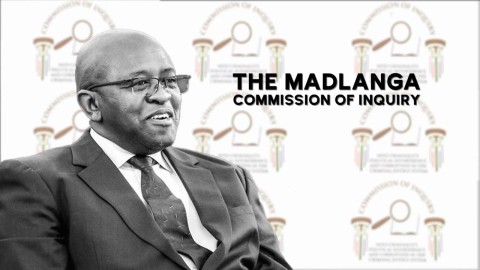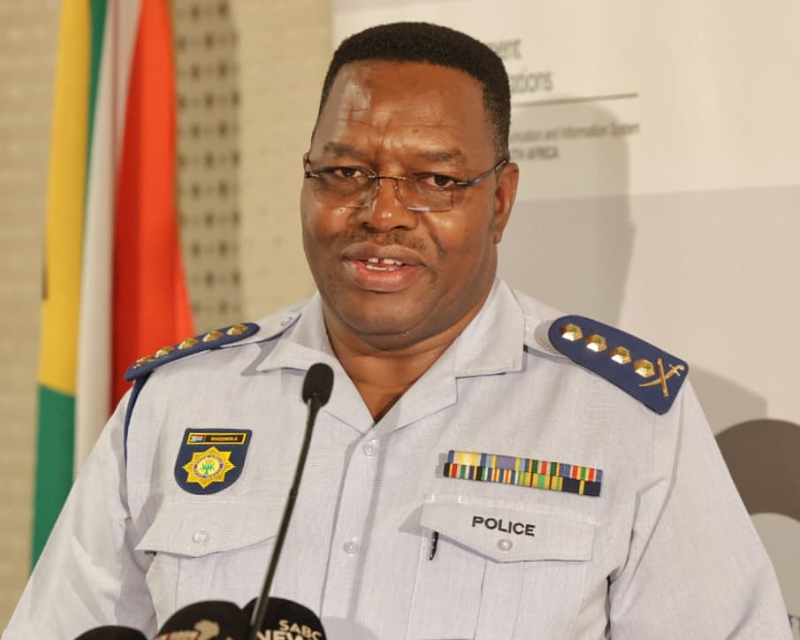Sibiya Had ‘No Authority’ to Strip Political Killings Task Team of Dockets, Madlanga Commission Told
The Madlanga Commission of Inquiry into criminality, political interference, and corruption in South Africa’s criminal justice system has uncovered fresh concerns about operational overreach within the police force, with testimony revealing that Deputy National Commissioner for Crime Detection Shadrack Sibiya had no legal authority to order the removal of 121 sensitive dockets from the KwaZulu-Natal Political Killings Task Team (PKTT). Major-General Petronella van Rooyen, head of the South African Police Service (SAPS) legal division, told the commission on Thursday, 25 September 2025, that Sibiya’s unilateral decision to transfer the files to Pretoria headquarters in March 2025 halted investigations and bypassed proper protocols, leaving provincial commissioner Lieutenant-General Nhlanhla Mkhwanazi in the dark. “Then it means there are things happening in the police that the provincial commissioner is accountable for but doesn’t have knowledge of.
That is problematic. It undermines the authority of a provincial commissioner to effectively manage the police within that province,” van Rooyen said, highlighting how such actions erode trust and efficiency in tackling politically motivated crimes.
This revelation, coming on Day 6 of the public hearings at the Brigitte Mabandla Justice College in Pretoria, builds on explosive testimonies from Mkhwanazi and National Police Commissioner General Fannie Masemola, who both flagged the docket move as suspicious and potentially linked to efforts to shield high-profile suspects. The PKTT, established in 2011 to probe assassinations in KwaZulu-Natal amid rising political violence, had made significant strides, with over 300 cases investigated and dozens leading to convictions. Yet, the transfer—ordered without consulting Mkhwanazi—stalled progress on at least five dockets ready for arrests, including those tied to organised crime syndicates. As the commission delves deeper into SAPS’s legal framework, van Rooyen’s evidence paints a picture of internal power plays that could compromise national security, especially in a province where political killings remain a stark threat to democracy.
Van Rooyen’s Testimony: Legal Boundaries and the PKTT Disbandment Drama
Major-General Petronella van Rooyen, a seasoned SAPS legal expert with over 30 years in governance and policy, took the stand to unpack the constitutional and legislative guardrails governing police operations. Her appearance, the third major witness after Mkhwanazi’s three-day stint and Masemola’s two-day grilling, focused on the separation of powers under Sections 199 and 206 of the Constitution. She affirmed that ministerial directives must stay in policy realms, not encroach on operational decisions like task team management, which fall squarely under the national commissioner’s remit.
Van Rooyen’s sharpest critique targeted Police Minister Senzo Mchunu’s December 2024 letter ordering the PKTT’s immediate disbandment—a move she deemed “unlawful” and beyond his authority. “It can never be appropriate for the minister to instruct the national commissioner, not only to disband the PKTT but also to say the disbandment must be done immediately,” she stated, echoing Masemola’s earlier view that it constituted an “encroachment” on operational turf. The minister’s rationale—that political killings were a pre-1994 relic—ignored the team’s post-apartheid successes, including probes into the 2022 murder of ANC Youth League leader Sindiso Magaqa and Fort Hare University assassinations.
Sibiya’s docket transfer, executed on 26 March 2025 without Mkhwanazi’s input, drew van Rooyen’s ire as “incompetent” and procedurally flawed. The files, covering high-stakes cases like those involving alleged cartel figures Vusumuzi “Cat” Matlala and Katiso “KT” Molefe, sat idle in Pretoria for five months, gathering dust until Masemola ordered their return. Van Rooyen warned this secrecy could mask interference: “What would have been an appropriate path is for the minister to express that he no longer considers political killings to be a priority and direct the national commissioner to consider and take steps to align it with his directive.” Her testimony, expected to wrap up today, sets the stage for a National Prosecuting Authority (NPA) witness tomorrow, potentially unearthing prosecutorial angles on suppressed cases.
The PKTT’s Legacy: A Task Force Under Siege in KwaZulu-Natal’s Shadow War
The PKTT’s story is one of quiet heroism amid KwaZulu-Natal’s deadly undercurrents. Formed in 2011 following the Moerane Commission’s grim tally of over 200 political murders since 2011—many tied to ANC factional battles—the unit has been a bulwark against intimidation. Led by Lieutenant-General Dumisani Khumalo, it secured convictions in landmark cases, like the 2017 Magaqa killing, where a former municipal manager was recently denied bail. By 2024, the team had expanded to Gauteng, probing cross-province syndicates, including Matlala’s alleged drug and extortion ring.
Yet, from late 2024, the unit faced existential threats. Mchunu’s directive, reportedly influenced by figures like businessman Brown Mogotsi, cited outdated priorities, but Mkhwanazi alleged it shielded politically connected criminals. Sibiya’s docket grab—framed as an “audit”—coincided with PKTT probes into Matlala, whose phone records later linked him to Sibiya and Mchunu’s chief of staff. Five dockets were arrest-ready, including those on Matlala and Molefe (facing charges in the 2022 murder of DJ Sumbody and engineer Armand Swart), but languished without action. Masemola later confirmed the PKTT persists informally, with a Gauteng offshoot now operational, but the disruption cost months and risked evidence tampering.
Van Rooyen’s evidence underscores the human cost: stalled justice for victims’ families and emboldened syndicates. KZN’s murder rate, at 80 per 100,000, dwarfs the national average, with political hits often masking deeper criminality. The commission’s probe into this “sabotage,” as Mkhwanazi termed it, could recommend safeguards like independent oversight for specialised units.
🔴Central News Weekly Edition | Issue 115 🔴Download the Latest Print and E-Edition | Headline: Ngwathe Municipality Refuses to Back Down, Heads to Supreme Court of Appeal
Download Here:
Direct PDF File Here:
https://centralnews.co.za/wp-content/uploads/2025/07/Central-News-Issue-114-1.pdf
Read all our publications on magzter:
https://www.magzter.com/ZA/Central-News-Pty-Ltd/Central-News/Newspaper/All-Issues
Central News also offers Sponsored Editorial Content, Podcasts , Radio / Social Media Simulcast, Video Production , Live Streaming Services, Press Conferences, and Paid Interviews (Video/Audio) etc.
We guarantee exceptional exposure, reach, and engagement, with an excellent return on investment.
Advertisement:
To place your advert on our platforms (Print Newspaper or Digital Platforms) : Please email : sales@centralnews.co.za
For Business Related:
business@centralnews.co.za
Newsroom:
Send your Stories / Media Statements To: newsroom@centralnews.co.za
General Info:
info@centralnews.co.za
[SRC] https://centralnews.co.za/sibiya-had-no-authority-to-strip-political-killings-task-team-of-dockets-madlanga-commission-told/
 Visit the website
Visit the website




